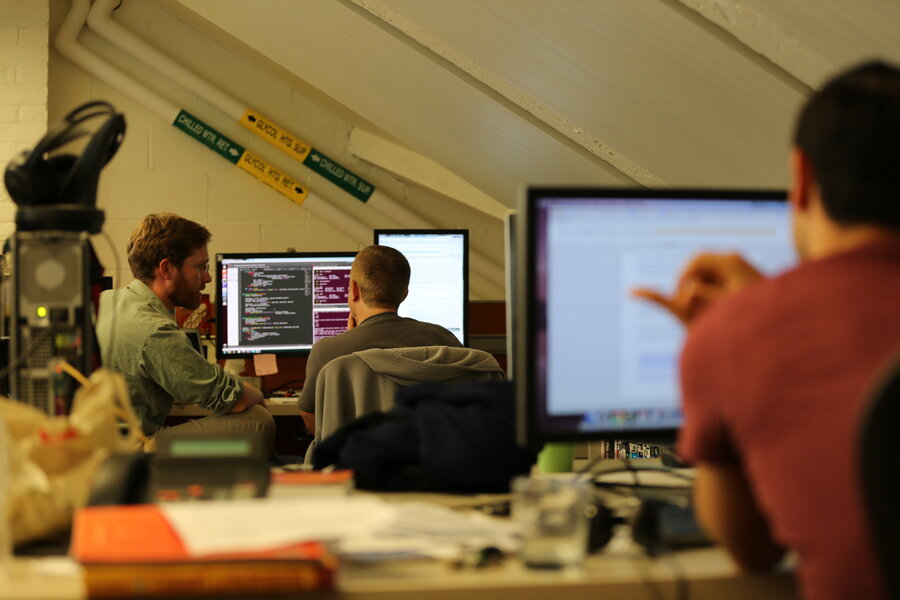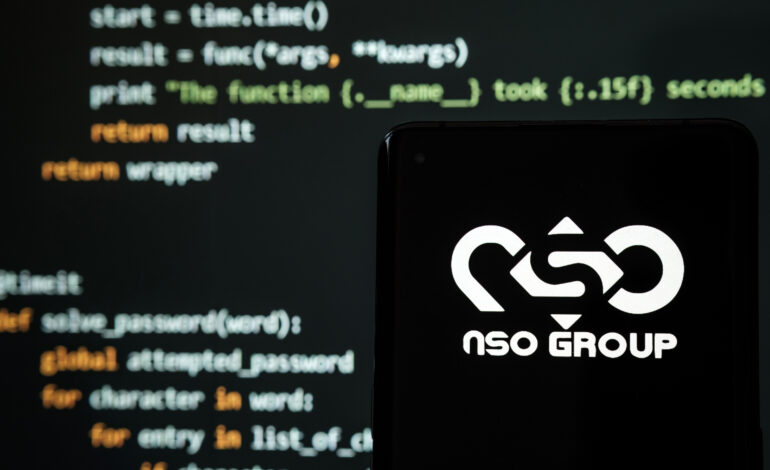An alarming discovery that the Israeli spyware company NSO Group targeted an ordinary citizen’s iPhone yet again caused Apple to deliver an important security update to its users.
Researchers at the University of Toronto’s Citizen Lab said a security issue in Apple’s software was exploited to plant spyware on a Saudi activist’s iPhone and that they had high confidence that the world’s most infamous hacker-for-hire firm, Israel’s NSO Group, was behind that attack.
Citizen Lab previously found evidence of similar hacking in the phones of Al Jazeera journalists and other targets, but hadn’t previously seen the malicious code itself.
Middle East Eye reported in December that the coordinated attacks on Al Jazeera were the largest concentration of phone hacks targeting a single organization. They took place just weeks before the normalization deal signed between Israel, the UAE and Bahrain.
The particularly dangerous and sophisticated form of hacking is called a “zero-click” exploit, as it doesn’t require users to click on suspect links or open infected files. An exploit is a piece of software or data or a series of commands that takes advantage of a vulnerability in a computing system.
Researchers at the Canadian university were able to capture and analyze the exploit this time around. Citizen Lab found the malicious code on Sept. 7 and immediately alerted Apple. The targeted activist asked to remain anonymous, they said.

Citizen Lab senior researcher John Scott-Railton (L) speaks with a technical advisor. Photo courtesy: Citizen Lab
NSO Group’s claims undermined
AP News reported that NSO Group responded to the news with a one-sentence statement saying it will continue providing tools for fighting “terror and crime.”
But Citizen Lab says the case reveals, once again, that NSO Group is allowing its spyware to be used against ordinary civilians.
Malicious image files were transmitted to the Saudi activist’s phone via the iMessage instant-messaging app before it was hacked with NSO’s Pegasus spyware, which opens a phone to eavesdropping and remote data theft, a Citizen Lab researcher said.
It was discovered during a second examination of the phone, which forensics showed had been infected in March. The malicious file causes devices to crash.
In a blog post, Apple said it was issuing a security update for iPhones and iPads because a “maliciously crafted” PDF file could lead to them being hacked. It said it was aware that the issue may have been exploited and cited Citizen Lab.
Apple commended Citizen Lab and said such exploits “are not a threat to the overwhelming majority of our users”, and that such exploits typically cost millions of dollars to develop and often have a short shelf life.
Users should get alerts on their iPhones prompting them to update the phone’s iOS software, but don’t have to wait and simply go into the phone settings, click “General” then “Software Update” and trigger the patch update directly.
Citizen Lab called the iMessage exploit “FORCEDENTRY” and said it was effective against Apple iOS, MacOS and WatchOS devices. It urged people to immediately install security updates.
If Pegasus was only being used against criminals and terrorists, we never would have found this stuff. — Bill Marczak, Citizen Lab
Senior researcher John Scott-Railton said the news highlights the importance of securing popular messaging apps against such attacks.
“Chat apps are increasingly becoming a major way that nation-states and mercenary hackers are gaining access to phones,” he said. “And it’s why it’s so important that companies focus on making sure that they are as locked down as possible.”
The researchers said it also undermines NSO Group’s claims that it only sells its spyware to law enforcement officials for use against criminals and terrorists and audits its customers to ensure it’s not abused.
“If Pegasus was only being used against criminals and terrorists, we never would have found this stuff,” said Citizen Lab senior researcher Bill Marczak.
Journalists, activists, some WhasApp users previously targeted
Facebook’s WhatsApp was also allegedly targeted by an NSO zero-click exploit. In October 2019, Facebook sued NSO in U.S. federal court for targeting some 1,400 users of the encrypted messaging service with spyware.
In July, a global media consortium published a damning report on how clients of NSO Group have been spying for years on journalists, human rights activists, political dissidents and people close to them, with the hacker-for-hire group directly involved in the targeting. Amnesty International said it confirmed 37 successful Pegasus infections based on a leaked targeting list whose origin was not disclosed.
In October 2019, Facebook sued NSO in U.S. federal court for targeting some 1,400 users of the encrypted messaging service with spyware.
One case involved the fiancee of Washington Post journalist Jamal Khashoggi just four days after he was killed in the Saudi Consulate in Istanbul in 2018. The CIA attributed the murder to the Saudi government.
The recent revelations also prompted calls for an investigation into whether Hungary’s right-wing government used Pegasus to secretly monitor critical journalists, lawyers and business figures.
India’s parliament also erupted in protests as opposition lawmakers accused Prime Minister Narendra Modi’s government of using NSO Groups’ product to spy on political opponents and others.
France is also trying to get to the bottom of allegations that President Emmanuel Macron and members of his government may have been targeted in 2019 by an unidentified Moroccan security service using Pegasus. Morocco, a key French ally, denied those reports and is taking legal action to counter allegations implicating the North African kingdom in the spyware scandal.
— Wire and staff






Leave a Reply